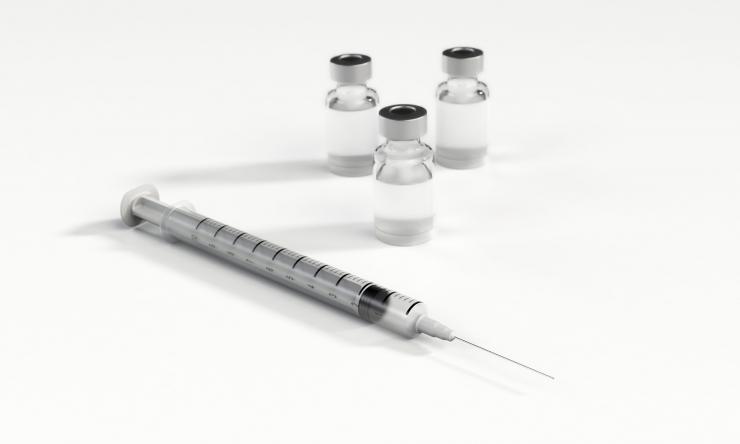Study shows safety of mix-and-match COVID-19 vaccine booster dosing
A study co-led by researchers at Baylor College of Medicine found that in adults who previously received a full regimen of any COVID-19 vaccine granted Emergency Use Authorization (EUA) or Food and Drug Administration (FDA) approval, a booster of one of these vaccines was safe and prompted an immune response. The preliminary clinical trial results were published today in The New England Journal of Medicine.
The study, led by the Infectious Diseases Clinical Research Consortium and sponsored by the National Institute of Allergy and Infectious Diseases (NIAID), part of the National Institutes of Health, looked at 458 adult volunteers who had previously been fully vaccinated with one of the three COVID-19 vaccines under EUA at least 12 weeks prior to enrollment. Volunteers had no reported history of SARS-CoV-2 infection. The Johnson & Johnson booster was given to 150 volunteers, 154 received a booster of the Moderna vaccine and another 154 a booster of the Pfizer-BioNTech vaccine.
“The goal of this study was to determine whether the individuals would produce an immune response from the booster dose and to assess the safety of such a booster,” said Dr. Robert Atmar, professor of infectious diseases at Baylor and co-principal investigator of the national trial.
The study showed that 15 days after the booster vaccination, the antibody levels increased in individuals in all three study groups and leveled off by day 29. Individuals who received a booster from a different manufacturer than their initial vaccine elicited a similar or higher immune response as compared to those who received the vaccine and booster from the same manufacturer.
Additionally, T cell responses were measured to understand the kinds of responses induced by the booster. Cellular CD4 Th1 responses directed against the spike protein increased in all groups except volunteers who received a single dose of Johnson & Johnson followed by a booster of Johnson & Johnson. However, CD8 T cell responses were more durable in Johnson & Johnson recipients and those who received an mRNA primary series followed by Johnson & Johnson boost.
There were no serious vaccine-related adverse events reported.
“This study shows us that all of the booster vaccines studied induced immune responses, regardless of the type of vaccine an individual had received originally, and we did not identify any concerns associated with a mix-and-match approach,” Atmar said.
Researchers will continue to monitor the volunteers for one year to understand what impact a booster dose of the vaccine will have on long-term immune responses.
NIAID grants supporting this research are UM1AI48372, UM1AI148373, UM1AI148450, UM1AI148452, UM1AI148573, UM1AI148574, UM1AI148575, UM1AI148576, UM1AI148684, UM1 AI148689 and with support from the NIAID Collaborative Influenza Vaccine Innovation Centers (CIVICs) contract 75N93019C00050.












